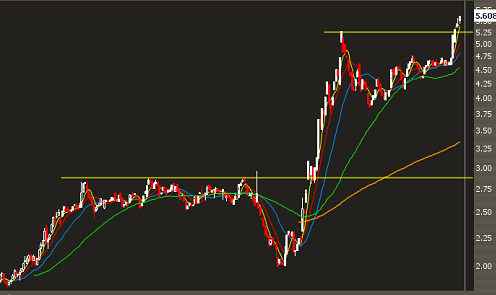Fred Wilson is out with a post about the supposed intrinsic value of gold and whether it makes sense as part of an investment portfolio. He cites the fact that it doesn't provide any dividends or other value, and the whole post is well worth a read. You can view it here.
I've seen discussions about gold get downright ugly. Sentiment swings strong on both sides, and when that happens, you probably want to pay attention.
I've got two counterpoints to make, on the alternatives and the public perception.
Fred mentions real assets as a comparable hold to gold, but there's an extra component in gold and that's geopolitical instability. So buying a large rental property is nice because it acts as a hedge against inflation like gold; however, we are not seeing gold move because of inflationary concerns. Consider this chart:
This is a chart of the relative performance of GLD to the DB Commodity Index Tracking Fund. The latter is a basket of oil, metals, and agricultural exposure. So if inflation is the risk, we should see GLD run in lockstep with DBC, but if it spikes up, there is something else in the demand for GLD that inflation cannot account for-- geopolitical risk. Real assets don't act as a hedge against uncertainty about governments, and that is the argument that can be made for gold.
If the world ends, gold bears argue, it won't matter how much gold you own. That discussion can get very philisophical, but let's consider the evidence of how humans are currently perceiving the value of gold.
People react to gold differently than other assets. If you look at the premiums paid in options, the out of the money options bid a higher premium relative to the at the money; this occurs at much higher strikes and much lower strikes. This is different than stock option premium because gold volatility "smiles" and stock volatility "skews." Part of the reason is that the perceived risk to the upside in GLD is more fearful than upside risk in stocks.
Also, GLD option premiums tend to spike when the underlying makes a strong upside move; this correlation is the opposite of what we see in equities. This is evidence that there is "fear" to the upside rather than "greed," and if a bubble does form in gold, the underlying sentiment would be much, much different than the bubbles from tech, credit, and tulip bulbs.
If you trade trends, you not only care about the fundamental value of the underlying, you also have to care about the perceived value of it as well. There's no evidence yet that the trend in GLD is going to stop its trend.
